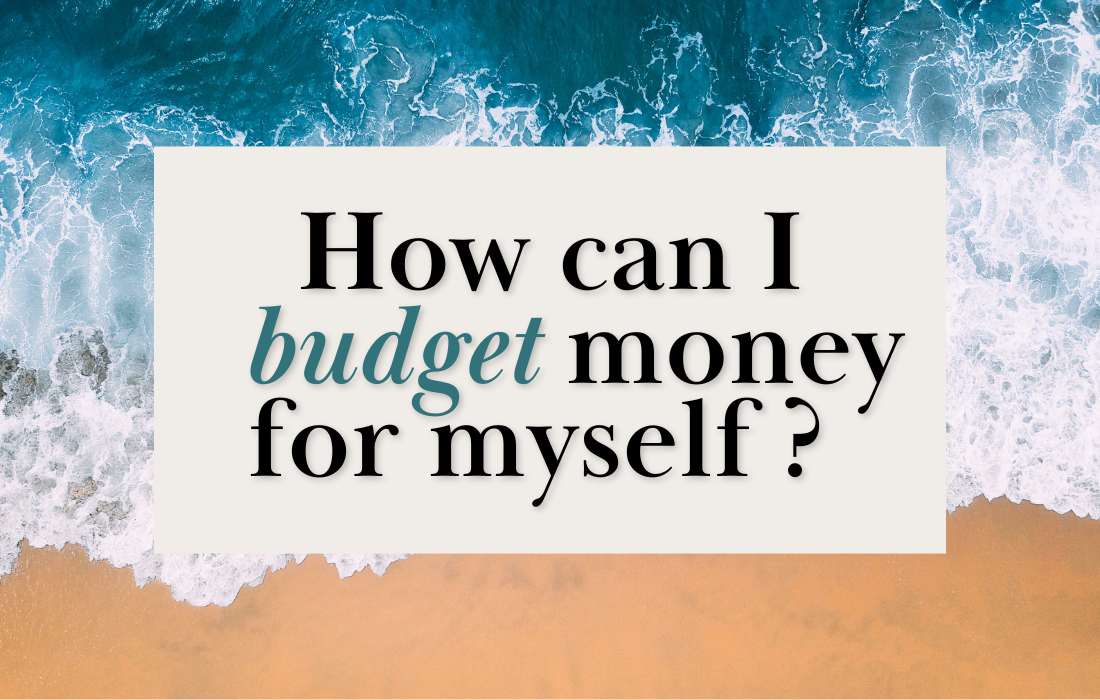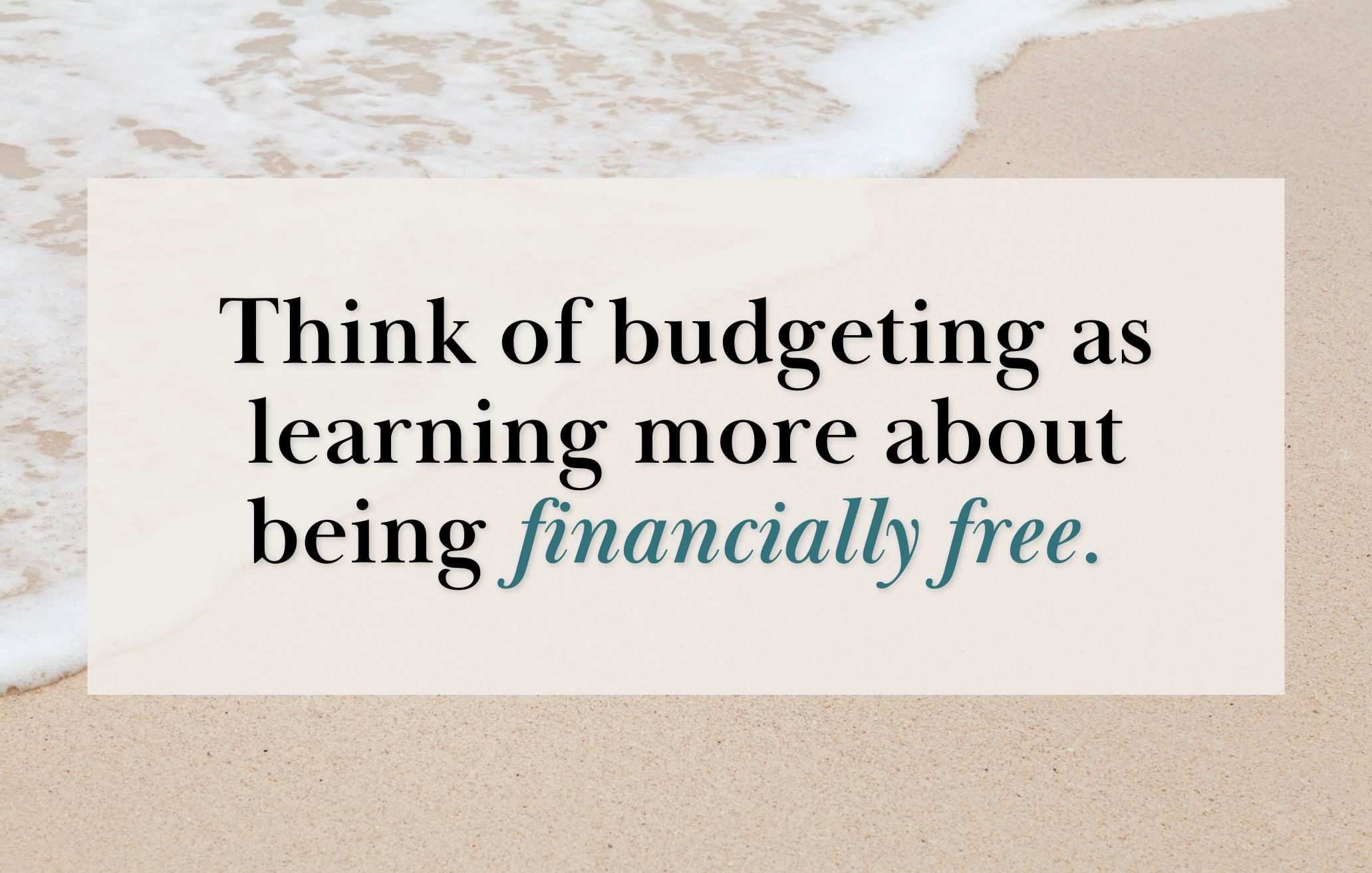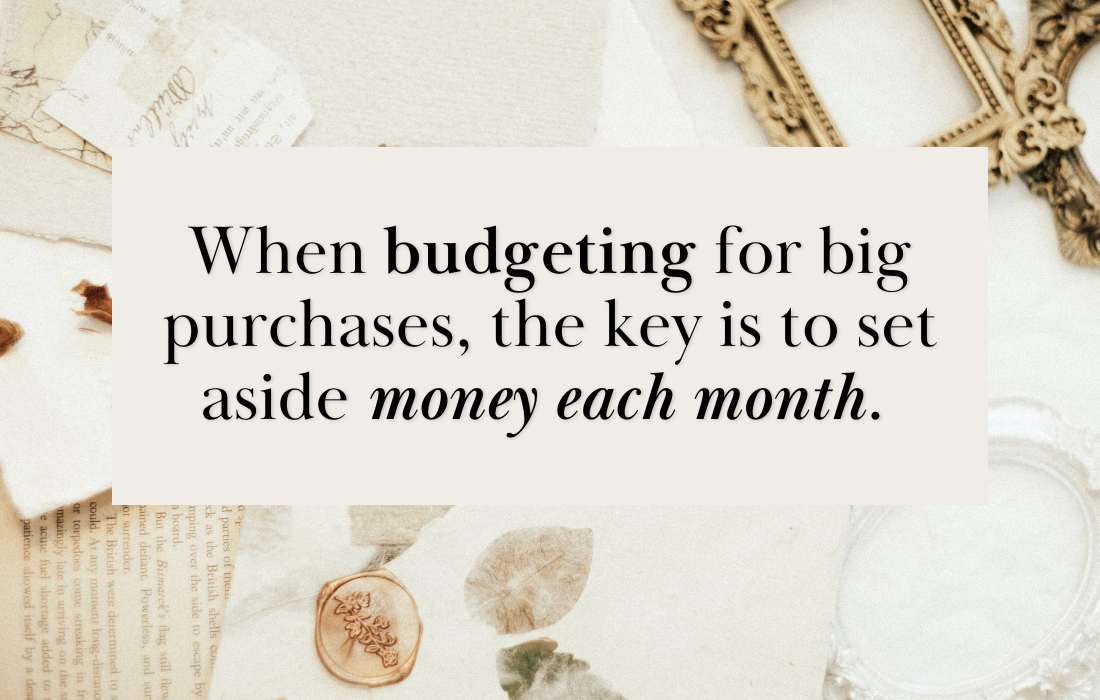How can I budget money for myself?
Let’s talk about how to budget money for yourself so you feel good at the end of the month and don’t fall into the trap of thinking that you’re “bad” with money.
Written By Tiffany Woodfield, Financial Coach, TEP®, CRPC®, CIM®

Your Budgeting Mindset Comes First
The key to successful budgeting is first understanding how you think about budgeting.
If you think budgeting is important because you are “bad with money,” then you will reinforce that you are bad every time you start to budget. Instead, if you think of budgeting as learning more about being financially free, you will feel motivated to budget.
Then, you can choose from some successful methods such as zero-based budgeting, 50-30-20 budgeting, envelope budgeting and value-based budgeting.
Quick Video: Zero-Based Budgeting Basics
Zero-based budgeting can be a smart way to ensure you’re saving, investing, and putting money towards credit card or other debts as well as enjoying your life!
How I Approach Budgeting: Now vs. In My 20s
Over the past ten years, I’ve become a financial advisor and portfolio manager and the co-founder of a financial advisory firm.
So, it’s safe to say that how I approach budgeting now is much different than in my 20s.
One of my first experiences with budgeting was in my 20s when I went backpacking in Australia. I was constantly afraid that I would run out of money and either have to go home early or miss out on fun activities.
To manage this, I had a little notebook and would write down what I spent on everything. I kept a running total of my savings.
While my “budgeting plan” wasn’t structured with separate categories, it kept me on track.
Now that I have a family, a successful career, and a good income, budgeting is way different.
The biggest risk people at my stage fall into is spending everything they earn and not saving for the future. It’s not uncommon for people to forget that one day, they will want to retire.
High-income earners often forget to think about how they will fund their lifestyle in the future.
When I thought about my future and desire for financial freedom, I decided to evaluate my budget and regularly save a set percentage of my income for the future. I invest this money for the long term and allow the money to compound and earn passively.
So now you might be wondering how to get started. I’ve written a comprehensive blog post on budgeting. So, take a look at that post. Or, if you want something super simple, review my quick steps to getting started with budgeting below.
What are the basic steps to start budgeting?
The basic steps to start budgeting are as follows:
- Look at your current financial situation to understand how much money goes in each month.
- Determine how much your expenses are fixed and how much varies each month.
- Set goals and include a time frame.
- Create a plan for how much you will save and spend each month.
- Evaluate and track your progress.
How much should I save from my monthly income?
The simplest solution is often the easiest to follow: the 50/30/20 rule.
This means 50% goes towards needs and essentials such as groceries and housing, 30% towards wants, and 20% towards savings and repaying debt. You may need to adjust the percentages based on your circumstances. But these percentages act as a solid guideline.

What’s the best way to manage irregular income?
Budgeting with irregular income means you need to dig a little deeper when looking at how much money comes in each month.
Once you have this information, budget based on the lowest monthly income. This is because you want to create a cushion and take away the stress of running out of money.
And remember, if you use a percentage strategy to allocate to different buckets, you will automatically allocate more or less depending on your income that month.
How can I reduce my monthly expenses?
I could give you a whole bunch of tips, such as buying in bulk, meal planning, reducing subscriptions and cutting coupons.
All of these will help reduce your monthly expenses, but the biggest way to reduce your expenses is to really look at what you spend your money on! It can be a real eye-opener, and you’ll probably find unique ways to cut back without any sacrifice.
Is it wise to use credit cards while budgeting?
If you’re asking the question, “Is it wise to use credit cards when budgeting?” you likely already know the answer because using a credit card is dangerous.
There is a reason all the credit card companies are doing so well. It is much easier to overspend when using a credit card versus using cash. It doesn’t mean there isn’t a place for credit cards, but you need to use them wisely and keep them at home if you find them too easy to use when they are in your wallet.
How do I budget for big purchases or holidays?
When budgeting for big purchases, the key is to plan and set aside money each month.
So, if you know you want to go away for Christmas, start planning at the beginning of the year. Look at how much it will cost and put this money aside into a separate savings account. What you don’t want to do is put the big purchase on a credit card and hope you will have the money later.

Final Thoughts
Remember, budgeting isn’t only for people who “need” to budget because they don’t have enough.
Budgeting is about educating yourself and creating peace of mind. Budgeting is about knowing you will be financially secure in the future.
The people who are the most financially successful are the ones who use tools such as budgeting to understand their financial situation.
Get the Free Guide and Audio Meditation for Manifesting Your Dreams
Pop your email address in the form below to get my easy checklist and guide to manifesting and the guided audio meditation to help you get started.
You’ll also get one or two emails per month with the latest blog posts about abundance, wealth-building, manifesting, and creating a fulfilling life.
Related Articles
💎 Budgeting 101: How to Create and Follow a Simple Budget
💎 How to Stick to a Budget (Even If You’re New to Budgeting)
💎 How To Budget When You Make a Lot of Money
About the Author

TIFFANY WOODFIELD is a financial coach, cross-border expert, and the co-founder of SWAN Wealth based out of Kelowna, BC. As a TEP and associate portfolio manager, Tiffany has extensive experience working with successful professionals who want to leave a legacy and enjoy an adventurous, work-optional lifestyle. Tiffany combines extensive knowledge from her background as a financial professional with coaching and her passion for personal development to help her clients create a unique path that allows them to live their fullest potential. Tiffany has been a regular contributor to Bloomberg TV and has been interviewed by national and international publications, including the Globe and Mail and Barron’s.